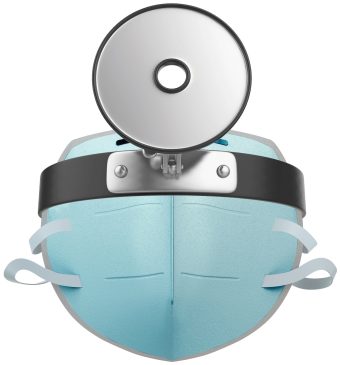
Published on Show Me Mizzou Dec. 16, 2022
Story by Mara Reinstein, BJ ’98
Think a tricked-out watch that monitors your resting heart rate is helpful? Imagine a wearable electronic device that can track your glucose and alcohol levels post-Sunday brunch, the ultraviolet intensity on your face during a summer run and your midsleep breathing rhythms.
Zheng Yan, an assistant professor in Mizzou’s biomedical, biological and chemical engineering department and mechanical and aerospace engineering department, published a study in the June issue of Science Advances demonstrating the capabilities of such an innovative multifunctional product. Not only is it possible, he says. It could be a matter of life or death.
“If we can make affordable, customized electronics and equip our bodies with these devices, we can take proactive actions at the early stages of some diseased conditions,” says Yan, whose on-campus lab specializes in soft bioelectronics. “Our future can be dramatically changed and reshaped.”
The key factor: Such devices must be soft enough to slip right onto the skin (Picture those sticky patches applied to your chest to monitor your heart rate in a hospital ER.). “A watch is a hard surface, so it’s not as effective,” he says.
In the wake of the pandemic, Yan and his team of 20 — half of which are Mizzou students — have also researched and developed a “smart” face mask with similar health benefits. Thanks to the creation of a built-in sensor, someone’s health status can be determined based on a mere cough. These findings were published this past March in ACS Nano, a journal of the American Chemical Society.
“The sensor can not only physically protect us from foreign bacterial and virus infections but also provide real-time monitoring of our body status,” he says, noting that the special product is battery-free, breathable and easy to manufacture.
And yes, these state-of-the-art devices may be coming soon to a shopping cart near you. Although more in-depth academic research and lab results are required, Yan says, “We are confident that these types of mask sensors and biomedical devices will eventually be available in the market.”
To read more articles like this, become a Mizzou Alumni Association member and receive MIZZOU magazine in your mailbox. Click here to join.



